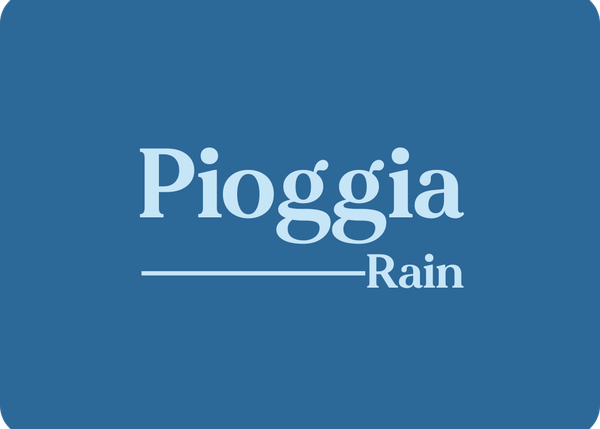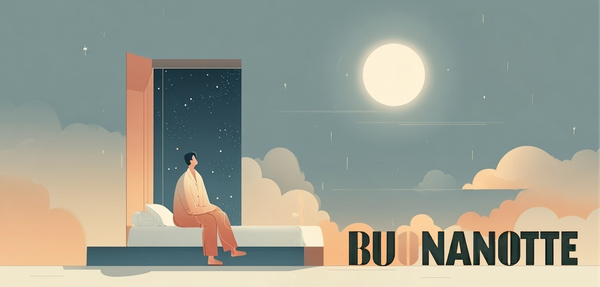Pioggia
NOUN [feminine]
Meaning and English translation 🔖
Rain
Used also metaphorically to describe a large amount or a heavy influx of something, often overwhelming or in great abundance.
| Masculine ♂️ | Feminine ♀️ | |
|---|---|---|
| Singular | - | la - una pioggia |
| Plural | - | le - delle piogge |
Example sentences 💬
Dopo una lunga siccità, la pioggia è stata una benedizione per gli agricoltori.
After a long drought, the rain was a blessing for the farmers.
Le piogge intense possono causare allagamenti.
Heavy rains can cause flooding.
Il film ha ricevuto una pioggia di complimenti.
The movie received a shower of compliments.
Se il Governo non dice il motivo della sua scelta, si espone a una pioggia di critiche.
If the government does not say why it has chosen to do so, it exposes itself to a barrage of criticism.
This article is brought to you by Giulia School, where you can learn Italian the natural way—with real conversations and passionate teachers guiding you every step of the journey. It’s the closest thing to immersion you can get without living in Italy. Click here to learn more.
Idioms with pioggia 🇮🇹
Note: In this section, you may notice the word PIOVE. It means “it rains” and comes from the verb PIOVERE [to rain].
Cielo a pecorelle, pioggia a catinelle
Literal
Sheepish sky, pouring rain
Similar English expression
Not found
This proverb means that if the sky is scattered with small white clouds (as if they were many little sheeps), soon it will be pouring down.
Piove, governo ladro!
Literal
It's raining, thieves in the government!
Similar English expression
Damned government
Note: An expression used humorously to blame the government for anything, even the weather.
Non ci piove
Literal
It doesn’t rain
Similar English expression
That's for sure, no doubt about it
Piove sempre sul bagnato
Literal
It always rains on the wet
Similar English expression
When it rains, it pours.
Note: This expression can have both positive and negative connotations.
Fare due gocce (di pioggia)
Literal
To make two drops (of rain)
Similar English expression
To drizzle
Where does the word pioggia come from? 🔎
Pioggia originates from the popular Latin term "*plŏia," which evolved from the classical Latin "plŭvia." This, in turn, derives from the verb "plŭĕre," meaning to rain. In its journey from classical to popular Latin, the verb form shifted slightly to "plŏvĕre," illustrating the typical linguistic simplifications found in the vernacular versions of the language used by the common people throughout the Roman Empire. This etymological transition highlights the natural linguistic evolution from formal to more colloquial usage over time.
Did you know that... 🤓
Surprise your italian friends with curious facts about Italy and its culture
- Rain has its own scent: petrichor, petricore in Italian.
Petricore is the term used to describe the distinct smell that occurs when rain falls on dry soil. This scent is primarily caused by geosmin, an organic compound produced by soil-dwelling bacteria. The word "petricore" is derived from the Greek words "petra" [stone] and "ichor" (the fluid that flows in the veins of the gods in Greek mythology). It was coined in the 1960s by two Australian scientists who first identified this phenomenon. Interestingly, the term was borrowed into Italian from the English word "petrichor." - The Italian song Piove [It rains] by Jovanotti is used in The Sopranos as the final theme song of the episode Commendatori (S2 Ep.4).





